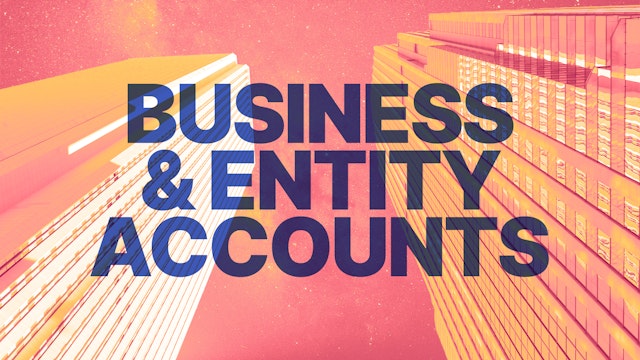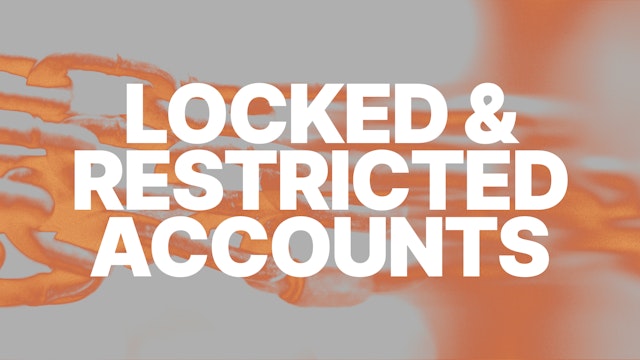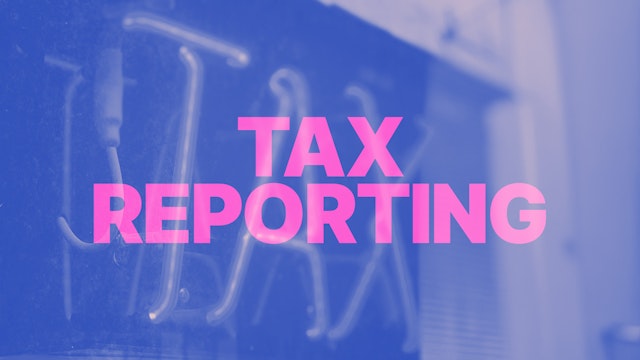CoinJar Learn - UK Investor Education
At CoinJar, we want to educate our customers of the risks of cryptoassets. Here’s some things that are important to know.
UK Investor Education

CoinJar's Roles and Responsibilities
CoinJar provides a hosted cryptoasset wallet which allows its customers to buy, sell, deposit and withdraw cryptoassets. We act upon your instructions in processing cryptoasset transactions. It is important for you to verify the accuracy of any transaction details you provide, especially external wallet addresses.
Despite CoinJar's stringent listing policy for cryptoassets available on the platform, the onus remains on you to perform thorough due diligence and comprehend the associated risks before making any purchases. We recommend that you review our Risk Summary which provides information on the key risks of investing in cryptoassets. Subject to our listing policy, we select which cryptoassets to support at our discretion, and we do not own or control the underlying software protocols of these assets.
While CoinJar has proactive measures to mitigate fraud and money laundering, customers are equally responsible for staying alert to potential scams. It is crucial for customers to recognise and understand that you are unlikely to get your money back if you incur losses due to sending cryptoassets to scams.
Your Ownership Rights and Associated Risks
When you deposit or purchase cryptoassets through CoinJar, it is essential to understand the nature of your ownership and the associated responsibilities. In accordance with our Terms of Service, we hold the legal title to, and you are the beneficial owner of, the amount of cryptoassets we hold on your behalf.
In practical terms, this means that CoinJar serves as a custodian, holding these assets on your behalf. However, the ownership of these assets lies with you.
We note that there are still some risks remaining even though you are beneficial owner of the cryptoassets on CoinJar's platform. If CoinJar, or any of its third party service providers go into insolvency or otherwise fail, you may not receive the full amount of your cryptoassets back quickly. There may be significant delays in recovering your investment, and there is a possibility that the recovered amount might not reflect the full value of your original investment. Insolvency processes may be protracted and take a long time to complete.
Please note that the legal and beneficial ownership arrangements vary widely amongst cryptocurrency exchanges, and they may be complex to understand. We encourage you to carefully review each exchange's terms of service and understand your ownership rights before making a decision to invest.
Complexity and Volatility of Cryptoasset Investments
Investing in cryptoassets carries a high level of complexity and inherent risks that could potentially lead to a total loss of the money invested. The characteristics and economic mechanisms of each cryptoasset can be challenging to comprehend and validate, adding to the investment's complexity.
The market for cryptoassets is highly sensitive to shifts in supply and demand, which can significantly influence their prices. This susceptibility means that investments can be subject to extreme volatility, and there is the possibility of losing the entirety of your investment if the market sentiment turns negative.
It is important to note that the performance of cryptoassets is unpredictable, with their values capable of plummeting as swiftly as they might soar. This level of volatility distinguishes cryptoasset investments from traditional mainstream investments such as stocks or exchange-traded securities which are listed on the London Stock Exchange, which are typically considered to be more stable and are subjected to more stringent regulatory standards and oversight.
Don't invest unless you're prepared to lose all the money you invest. Cryptoassets are high-risk investments and you should not expect to be protected if something goes wrong.
Risks of Losing Money Due to Operational Failures or Financial Crime
While CoinJar is committed to maintaining robust cybersecurity measures, the digital nature of cryptoassets means that it is impossible to guarantee that your cryptoassets are safe from all operational risks, including cyberattacks, the loss of private keys, or other operational failures.
Due to the irreversible nature of the blockchain, it can be difficult or impossible to recover any cryptoassets which are sent to third party bad actors, such as scam operators or money laundering operations. Customers must be vigilant and be aware of typical warning signs before sending cryptoassets to any third party. Scammers may appear to be kind and helpful, and may assist you in setting up your CoinJar accounts and purchasing cryptoassets.
These risks underscore the potential for investors to lose money or cryptoassets due to factors beyond typical market risks, and thus, require a heightened level of vigilance and understanding of the unique challenges presented by the cryptoasset sector.
Risks of Not Being Able to Readily Sell Your Cryptoassets
Investing in cryptoassets comes with the risk that you might not be able to sell or withdraw them when you wish to. Limited market liquidity can make it challenging, sometimes impossible, to execute such transactions in a timely manner and at prices that you may be hoping for. Additionally, operational disruptions, either on the part of CoinJar's platform or within the blockchain network itself, could further complicate access to your assets.
Such limitations on liquidity and potential operational issues mean that there might be instances where withdrawing or selling your cryptoassets could be delayed or unfeasible. It is very possible that in a rapid sell-off of a particular cryptoasset, you may not be able sell quickly, or at all, before the cryptoasset loses all of its value.
This lack of guaranteed accessibility is a risk factor that distinguishes cryptoassets from more liquid and traditional investments and must be carefully considered when engaging in the cryptoasset market.
Regulated Status and Protections In Relation To Cryptoasset Investments
In the UK, the regulatory framework for cryptoassets remains limited, and these digital assets are not subject to the same levels of regulation as other traditional investments such as publicly traded stocks. The Financial Conduct Authority has limited jurisdiction over cryptoassets.
This means that if you face issues or face losses in relation to your cryptoasset investments, recourse options such as lodging a complaint with the Financial Ombudsman Service or seeking compensation through the Financial Services Compensation Scheme are not available.
The implications of this limited regulatory oversight extend to the protections you might expect in other areas of financial services. You must carefully consider the lack of coverage by these consumer protection schemes before making a decision to invest in cryptoassets.
Benefits of Diversification
A well-structured approach to investment is to ensure diversification across various asset classes. This strategy not only spreads risk but also prevents overexposure to any single asset type, particularly high-risk investments like cryptoassets. The principle of not allocating more than 10% of your net assets in high-risk investments is a prudent measure to mitigate potential financial loss.
By diversifying your investments, you can smooth out the effects of one performing badly, while still reaping rewards when others do well.
An example of a diversified portfolio is where you allocate 5% of your net assets in high-risk investments like cryptoassets, while the rest are allocated to a mix of cash, bonds, equity in UK companies across different sectors, and shares in international companies. This blend not only leverages the growth potential of varied markets but also serves as a buffer against market volatility in any one sector.
The Financial Conduct Authority's InvestSmart page on diversification is a great resource to consider before making a decision to invest in cryptoassets.
Risks Associated with Stablecoins
Stablecoins are a unique sub-category of cryptoassets and involve cryptoassets which claim to maintain a form of stability against another asset, such as currency and commodities. There are unique risks involved with stablecoins because they may mislead customers into thinking that they are safe.
For example, Tether (USDT) and USD Coin (USDC) claim to be pegged 1-to-1 with the US Dollar. Customers may expect that these coins will always maintain their value with the US Dollar. However, some stablecoins have failed and have lost their value against their underlying assets due to varying reasons. It is important to understand that each stablecoin has their own method of "pegging" to their underlying asset and it is essential to review the whitepaper or terms and conditions of each stablecoin before purchasing them.
Some of the features that investors may wish to look for in stablecoins are:
- a credible and reputable issuer, preferably regulated or licensed in their jurisdiction(s) in which they operate
- ability to demonstrate ownership of the underlying assets or commodities. This can be verified through transparent disclosure, independent audits, or proof of deposits
- regular audit reports provided which show adequate reserves to honour withdrawals and redemptions.
Customers must always keep in mind that unforeseen events or operational issues could lead to a particular stablecoin failing to maintain its pegged value to its designated asset or currency. Such an occurrence could cause the stablecoin to rapidly fall in value and never recover. Therefore, a thorough assessment and understanding of all the risks involved is a critical step before making a decision to purchase or hold any stablecoins.

Suggested Articles

How to Set Up a CoinJar Account for Your Company in the United Kingdom
You can set up a CoinJar account for your company or business entity. Here are the steps you can follow to achieve this.Read more
Your CoinJar Account is Restricted: Why It Happens and How to Fix It
Resolution steps: A clear guide on how to verify your identity and contact support to regain access.Read more
Exporting Your Trading and Transaction History for Tax Purposes
A step-by-step guide for CoinJar customers: How to export your trading and transaction history for the tax year.Read moreBrowse by topic
Standard Risk Warning: The above article is not to be read as investment, legal or tax advice and it takes no account of particular personal or market circumstances; all readers should seek independent investment advice before investing in cryptocurrencies.
The article is provided for general information and educational purposes only, no responsibility or liability is accepted for any errors of fact or omission expressed therein. Past performance is not a reliable indicator of future results. We use third party banking, safekeeping and payment providers, and the failure of any of these providers could also lead to a loss of your assets.
We recommend you obtain financial advice before making a decision to use your credit card to purchase cryptoassets or to invest in cryptoassets.
Capital Gains Tax may be payable on profits.
CoinJar's digital currency exchange services are operated in the UK by CoinJar UK Limited (company number 8905988), registered by the Financial Conduct Authority as a Cryptoasset Exchange Provider and Custodian Wallet Provider in the United Kingdom under the Money Laundering, Terrorist Financing and Transfer of Funds (Information on the Payer) Regulations 2017, as amended (Firm Reference No. 928767).
In the UK, it's legal to buy, hold, and trade crypto, however cryptocurrency is not regulated in the UK. It's vital to understand that once your money is in the crypto ecosystem, there are no rules to protect it, unlike with regular investments.
You should not expect to be protected if something goes wrong. So, if you make any crypto-related investments, you're unlikely to have recourse to the Financial Services Compensation Scheme (FSCS) or the Financial Ombudsman Service (FOS) if something goes wrong.
The performance of most cryptocurrency can be highly volatile, with their value dropping as quickly as it can rise. Past performance is not an indication of future results.
Remember: Don't invest unless you're prepared to lose all the money you invest. This is a high-risk investment and you should not expect to be protected if something goes wrong. Take 2 mins to learn more.
UK residents are required to complete an assessment to show they understand the risks associated with what crypto/investment they are about to buy, in accordance with local legislation. Additionally, they must wait for a 24-hour "cooling off" period, before their account is active, due to local regulations. If you use a credit card to buy cryptocurrency, you would be putting borrowed money at a risk of loss.
We recommend you obtain financial advice before making a decision to use your credit card to purchase cryptoassets or to invest in cryptoassets.
Your information is handled in accordance with CoinJar’s Privacy Policy.
Cryptoassets traded on CoinJar UK Limited are largely unregulated in the UK, and you are unable to access the Financial Service Compensation Scheme or the Financial Ombudsman Service.
We use third party banking, safekeeping and payment providers, and the failure of any of these providers could also lead to a loss of your assets.
We recommend you obtain financial advice before making a decision to use your credit card to purchase cryptoassets or to invest in cryptoassets. Capital Gains Tax may be payable on profits.
CoinJar’s digital currency exchange services are operated in the UK by CoinJar UK Limited (company number 8905988), registered by the Financial Conduct Authority as a Cryptoasset Exchange Provider and Custodian Wallet Provider in the United Kingdom under the Money Laundering, Terrorist Financing and Transfer of Funds (Information on the Payer) Regulations 2017, as amended (Firm Reference No. 928767).
Apple Pay and Apple Watch are trademarks of Apple Inc. Google Pay is a trademark of Google LLC.
This site is protected by reCAPTCHA and the Google Privacy Policy and Terms of Service apply.

